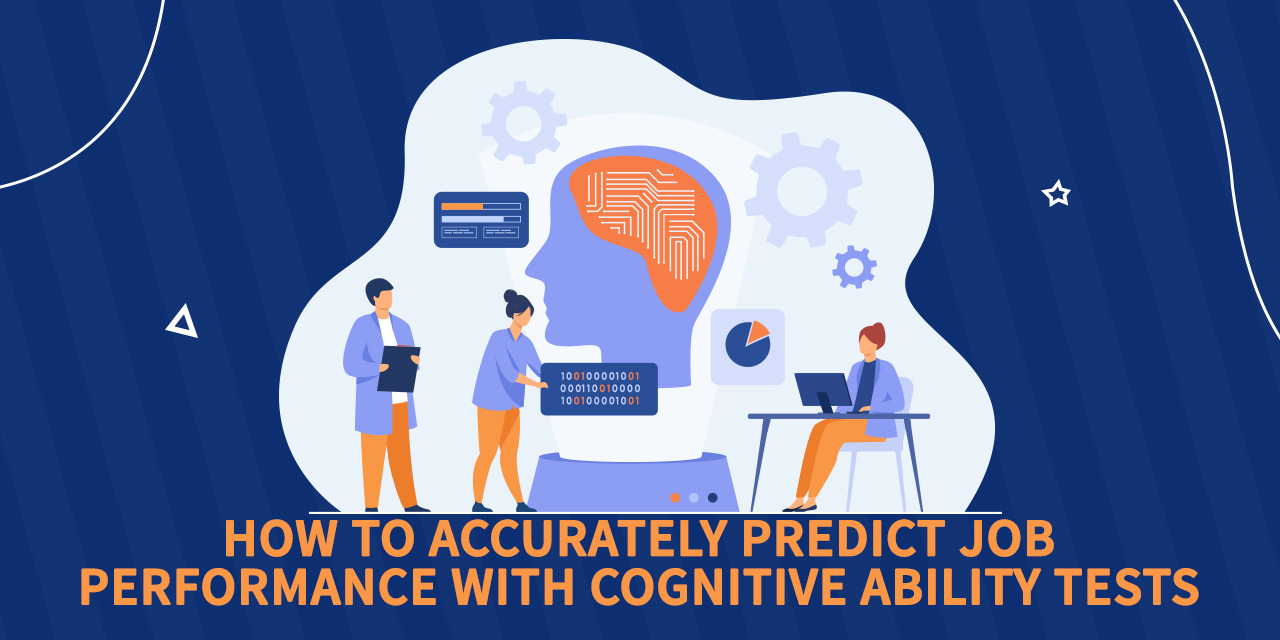The benefits of talent assessments cannot be stressed upon enough. And an integral part of such assessments is cognitive ability test — that can predict job performance of candidates to a remarkable degree.
Is It Possible To Predict Job Performance?
While predicting job performance may seem a little hard, researchers have discovered that it is possible. A research by Schmidt & Hunter revealed that General Cognitive Ability (GCA) is the most fundamental predictor of job and training performance.
‘Predictive Power’ at Google
Take the example of tech-giant Google. The recruitment team at Google considers General Cognitive Ability as an indispensable part of their candidate assessment.
In his book Work Rules, Laszlo Bock, former Senior Vice President of People Operations at Google presented the idea of ‘predictive power’. Predictive power assesses how well the performance of an individual in a candidate assessment or interview will be replicated in the actual on-the-job performance.

Why Traditional Recruiting Fails To Predict Job Performance
Bad hires are a product of a broken and flawed hiring process. This is why the traditional hiring process – that isn’t designed to assess skills and capabilities of a candidates – leads to recruiters making bad hiring decisions. One CareerBuilder survey reveals that more than forty percent of companies surveyed had spent at least $25,000 on a bad hire in the previous year, and 25% reported that such poor hires had cost them more than $50,000.
Additionally, eighty five years of research suggest that résumés alone are not enough to predict job performance. When combined with cognitive assessments, however, they can prove to be great future performance predictors.
General Cognitive Ability (GCA)
General Cognitive Ability (GCA), also known as the ‘g’ factor, forecasts social outcomes such as educational and occupational levels way better than any other behavioral trait. This is because it is essentially the ability to learn. People with higher GCA tend to grasp more information and absorb it faster.
“Research in differential psychology has shown that GCA is related to performances and outcomes in so many areas of life — more than any other variable measured in the social sciences — that it would not be possible for job performance to be an exception to the rule that GCA impacts the entire life-space of individuals” — Frank L. Schmidt (2002).

Predicting Job Performance Using Cognitive Ability Tests
Cognitive ability tests assess mental faculties such as memory, perception, reasoning, problem solving skills, and verbal and mathematical ability. Such tests are an effective method to predict future job performance and are designed to evaluate an applicant’s potential to find solutions to work-related problems or their ability to grasp new knowledge.
Numerical Reasoning — ranging from mental mathematics to complicated critical reasoning
Verbal Reasoning — evaluates the understanding of English language (grammar, vocabulary, comprehension)
Abstract Reasoning — involves incomplete symbols or diagrams with missing items to assess the ability to draw conclusions based on specific information
Logical Reasoning — aimed to assess critical thinking skills through the understanding of complicated text
The best GCA assessments combine the measurement of different types of reasonings, also known as cognitive ability test batteries. Most tests are similar in content, yet the format can differ. It is worthwhile to understand how each test works before applying one to your recruitment strategy. A specific test battery may be more suited to your job specifications.
General Aptitude Test — most commonly covers verbal reasoning, numerical reasoning, and cognitive ability, this test aims to determine innate ability at a number of levels.
